Stay Versatile: Making the Most of Fall Fishing
Be ready to change your approach, or target species, to keep catching fish in the fall.
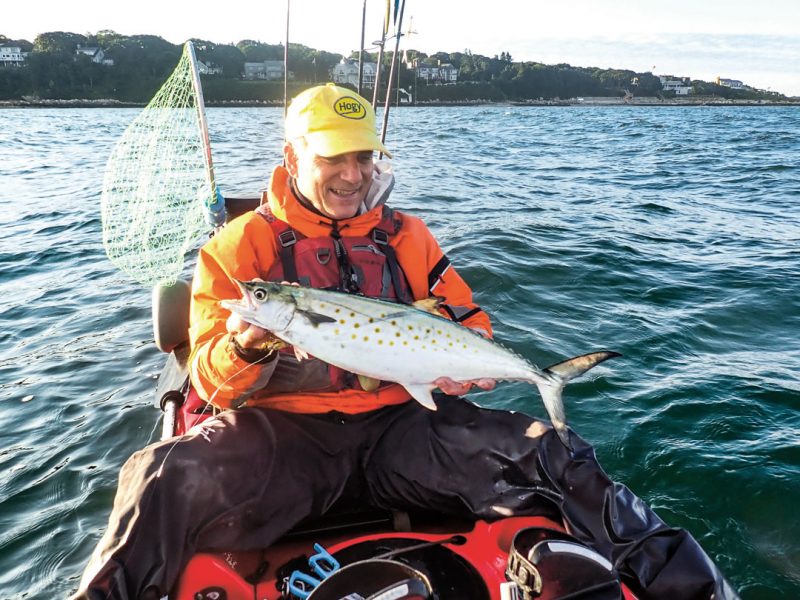
It is here at last, the fall run. In the salt, hordes of stripers have begun their migration back to their winter waters further south. In fresh water, billions of juvenile herring are feeding gamefish in every lake, river, and pond. Warm water visitors like false albacore and Spanish mackerel are here for a few weeks along with a number of other species that temporarily visit the Northeast.
It is hard to resist this smorgasbord of fishing opportunities. It is a chance to go big, catch some epic bites, and set personal-best records. The problem is those things probably aren’t going to happen, as our region has unexpected weather changes. Your day off is likely to be rainy and windy, and there is always a chance that a tropical storm may blow through.
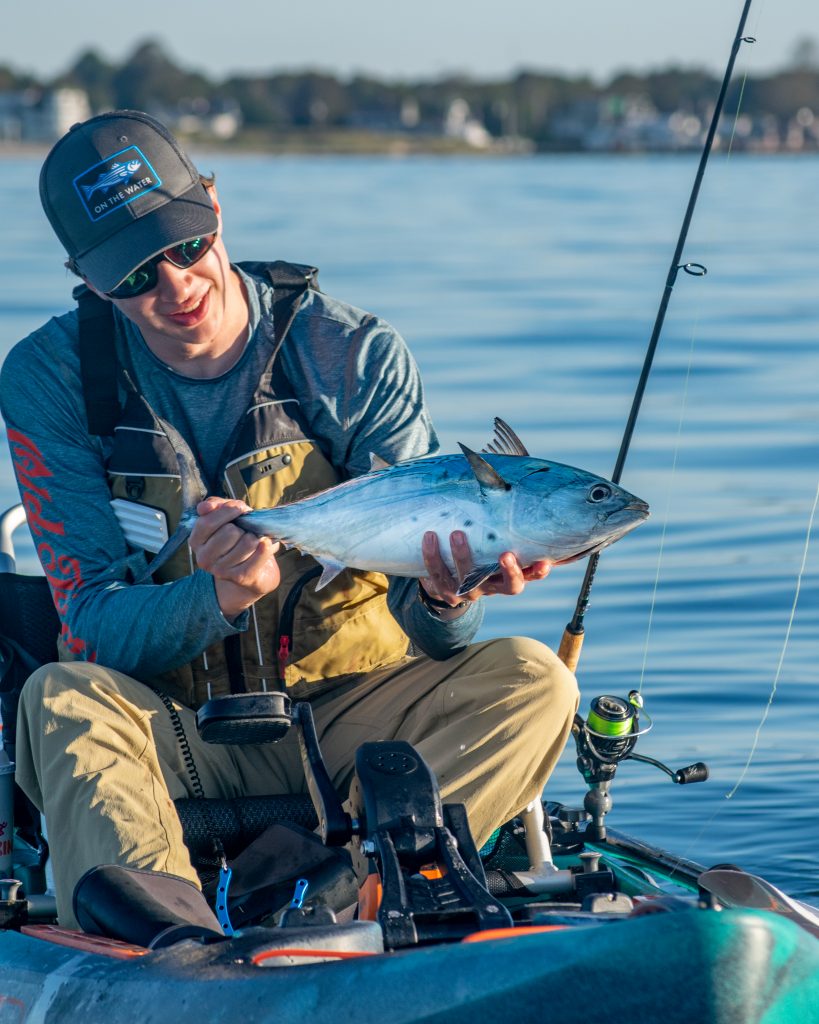 Andrew Burke with a kayak-caught albie from Thursday morning.
Andrew Burke with a kayak-caught albie from Thursday morning.
One of the great things about kayak fishing is that the craft is very portable and easy to drop into just about any kind of water. The fall season comes with high expectations but also with a number of weather challenges. The Northeast is an expansive area, so weather that impacts the Cape may not hit other states such as Vermont. If you can spend time driving, you can often avoid the worst of the weather and find good opportunities every week.
One thing that I have learned in my many years of kayak fishing is that I can’t count on anything! Yesterday’s bite and yesterday’s weather probably won’t happen again today. However, if you bring some flexibility to your game and make it easier to implement Plan B, you’re more likely to be happy with your results.
I can’t tell you how many times my fall albie trips to the Cape weren’t what I expected. The wind always seemed to be twice what was forecast and coming from the opposite direction. When that happened, I broke out my alternative plan and had a fun day catching bottom fish in a lee spot.
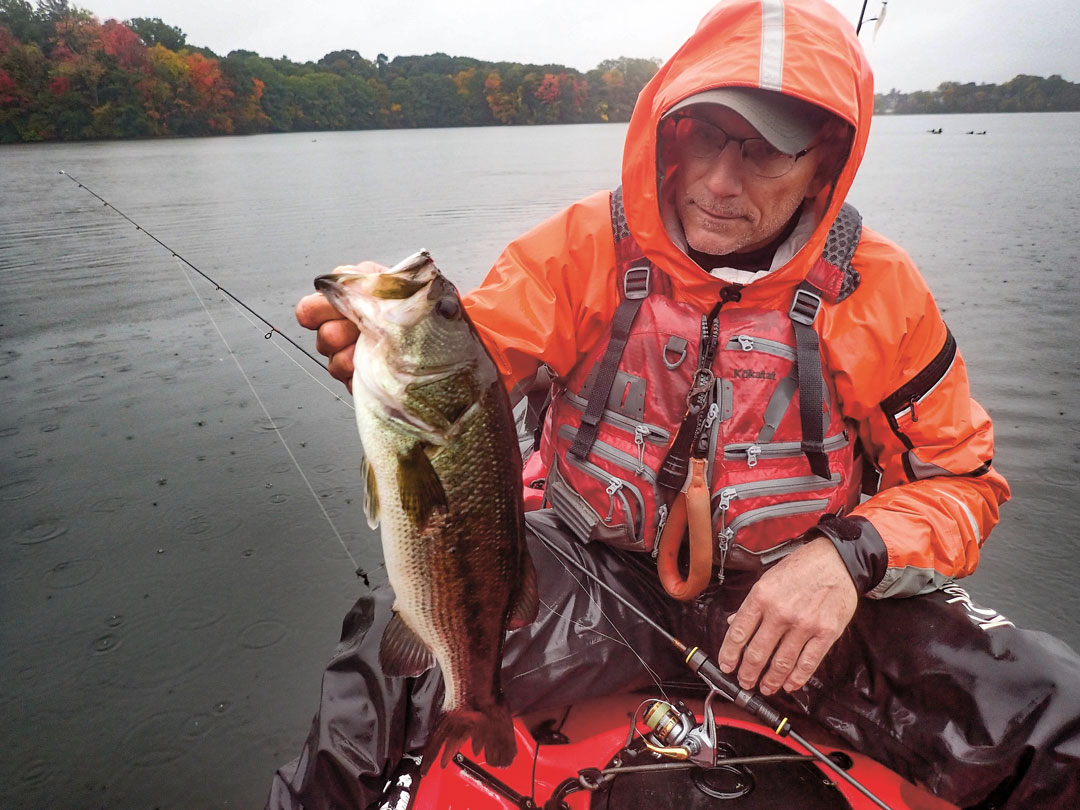
The same storm that churns up the ocean may also set off a really good bite in your local pond, especially if it has a herring population. When I can’t get out on the salt in search of stripers, I often downsize my tackle and chase crappie or bass. We tend to think of the fall run as a saltwater event, but the same thing is going on in fresh water, too. Even waters with no herring have a huge young-of-the-year baitfish bloom that is the basis for fall feeds. As the weeds die, the young fish have nowhere to hide, so they become much easier targets for gamefish.
My advice for the fall run comes down to being versatile, willing to change your plans, being mobile, and finding the easiest bite to fish. Keep it simple and use basic tactics. Summer fishing is about finding fish in their summer haunts and coaxing them to feed; fall fishing is about locating active fish and presenting bait. Fall fish are usually feeding on an array of bait and are going to be less picky about what they eat. That said, I still try to match the hatch.
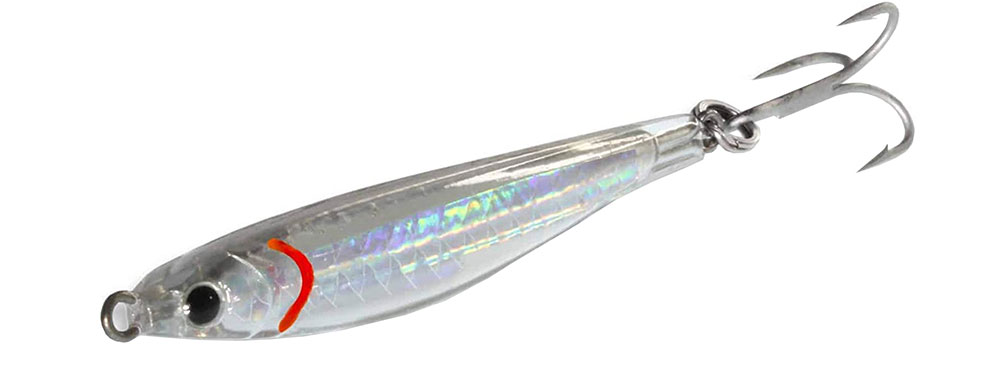
Matching the baitfish isn’t that hard to do, but it does require carrying different size lures in your box. If you are after albies, metals like epoxy jigs in the ½-to 1-ounce range are about all you need. Fortunately, these jigs are also the perfect size for everything else that feeds around albies. Stripers, bluefish, fluke, black sea bass, and scup will all hit the same jigs. Plan B for albie fishing can be as simple as moving inshore to cast around an outflow for stripers or bluefish, or perhaps moving to the closest drop-off and jigging for assorted bottom species. You can get by with a very limited tacklebox, and you can fish all day with a small assortment of metals and epoxy jigs. Limiting your tacklebox keeps your focus on effective techniques.
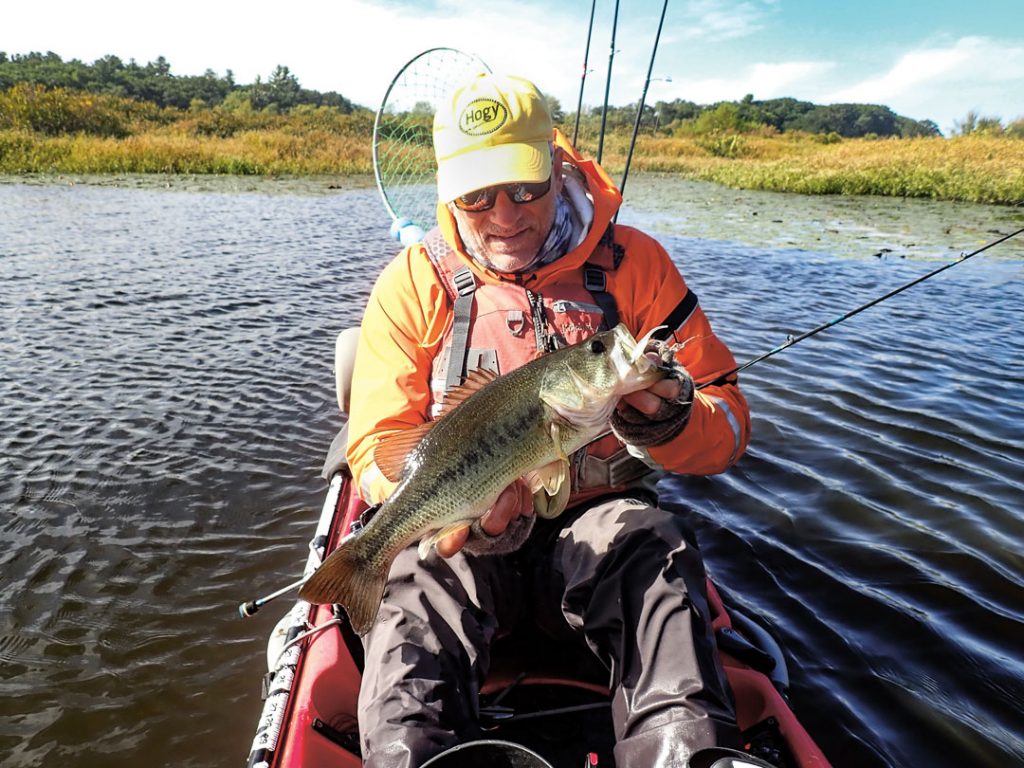
In fresh water, I tend to stay with very basic techniques to present small minnow baits. Whether it is a hard bait like a small Rapala or a little plastic like the 2.5-inch Lunker City Fin-S Fish, a small minnow bait will catch a variety of fish-from a hand-sized crappie to a full-sized largemouth. I often catch my biggest largemouth of the season on a small bait fished around a school of minnows. Last year, I found an old box of 6-inch plastic worms from the early 1980s and used them all fall. Even though they were not a minnow imitation, they produced very well. It was particularly fun to pull out a bag of lures over 30 years old and catch plenty of fish on them. The most basic lures never go out of style.
September is a time of plenty. Over the next 6 weeks, we have access to more saltwater species than any other time of year. When you pack for each trip, think about the most versatile lures in your box and which ones will catch the most species. It is easy to overpack, which can cause you to lose focus on the water. And, constantly changing lures eats up fishing time, so bring a few rods rigged differently and keep going back to your favorites. The odds are with us this month, so fish hard and believe in what you have tied on.
1 thought on “Stay Versatile: Making the Most of Fall Fishing”
-
Outie I had similar ideas about going minimal with my tackle. Staying flexible and being able to change plans on the fly. It’s easy to do when fishing epoxies. When the Albie blitzes quiet down its easy enough to jig for Porgies & Sea Bass. Trolling epoxies works very well for roaming Bluefish too. I’ve even caught a Fluke once while working an epoxy as if it were a Bucktail from shore.
I’m really stoked for the next few weeks. Here on Long Island I’m still waiting for the Albies to enter my waters, but I’ve been checking every day. It won’t be long now. And once that run ends, Tog season begins. This is easily my favorite time of year to be a yak angler. Just hope the weather cooperates.
Leave a Reply